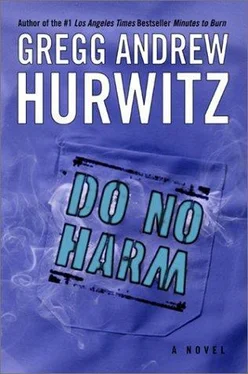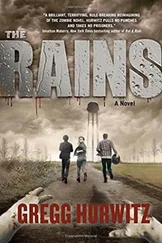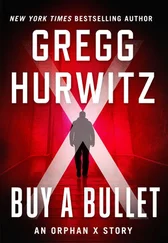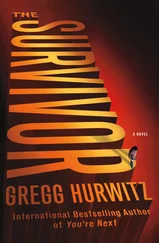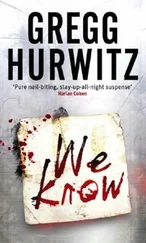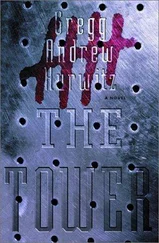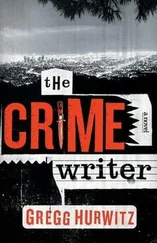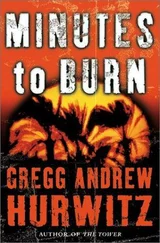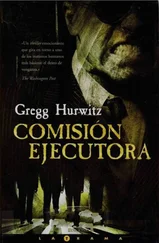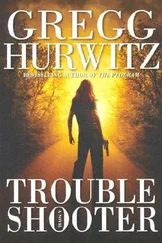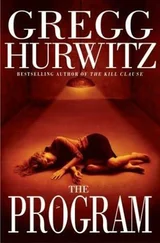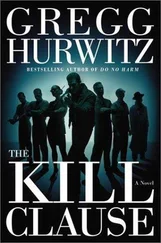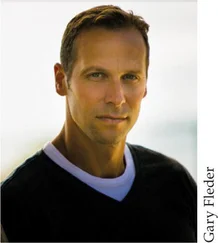Gregg Hurwitz - Do No Harm
Здесь есть возможность читать онлайн «Gregg Hurwitz - Do No Harm» весь текст электронной книги совершенно бесплатно (целиком полную версию без сокращений). В некоторых случаях можно слушать аудио, скачать через торрент в формате fb2 и присутствует краткое содержание. Жанр: Триллер, на английском языке. Описание произведения, (предисловие) а так же отзывы посетителей доступны на портале библиотеки ЛибКат.
- Название:Do No Harm
- Автор:
- Жанр:
- Год:неизвестен
- ISBN:нет данных
- Рейтинг книги:4 / 5. Голосов: 2
-
Избранное:Добавить в избранное
- Отзывы:
-
Ваша оценка:
- 80
- 1
- 2
- 3
- 4
- 5
Do No Harm: краткое содержание, описание и аннотация
Предлагаем к чтению аннотацию, описание, краткое содержание или предисловие (зависит от того, что написал сам автор книги «Do No Harm»). Если вы не нашли необходимую информацию о книге — напишите в комментариях, мы постараемся отыскать её.
Do No Harm — читать онлайн бесплатно полную книгу (весь текст) целиком
Ниже представлен текст книги, разбитый по страницам. Система сохранения места последней прочитанной страницы, позволяет с удобством читать онлайн бесплатно книгу «Do No Harm», без необходимости каждый раз заново искать на чём Вы остановились. Поставьте закладку, и сможете в любой момент перейти на страницу, на которой закончили чтение.
Интервал:
Закладка:
"I'm aware that prisons aren't a good place to summer, Dash."
"My point is that someone like Clyde is particularly ill equipped to handle it. The acute deprivation, the constant abuse-he'll be ripped apart. Look what happened to Jeffrey Dahmer."
"What did happen to Dahmer?"
"Bludgeoned to death with a metal bar." Dash hurled himself into the spin, his enormous body moving quick and graceful, and unleashed the discus with a grunt. It shot from his grip, arcing across the clear blue sky.
David let out a long, weary sigh. "Well, odds are the cops'll shoot him anyway."
Dash stood, hands on his hips, and watched the discus hit the grass and skid to a halt. When he turned back to David, his eyes were deeply sorrowful. "In some ways," he said, "that might be more humane."
Chapter 43
The shadows were beginning to lengthen by the time David arrived at Carson's apartment complex, a two-story '70s stucco sprawl. The grounds were a confusion of stairs, patios, and short outdoor halls.
Two guys in UCLA baseball caps sat in their fenced-in porch on crooked lawn chairs, watching a game of some sort, judging by the roar of the crowd that emanated from the TV. A video game unit was perched on a shoebox at their feet. The controls, attached to curling gray cords, looked complicated, with many buttons and dials. David remembered the Atari joysticks with their single red buttons and suddenly felt quite old. A female newscaster broke in on the TV, promising more details about the escaped "Westwood Acid Thrower" after the game. David leaned around a mountain bike hung vertically and asked to be pointed to Apartment 4B.
"Right down there, man," one of the guys said, pointing around a can of beer. A flicker of recognition crossed his eyes, and he glanced back at the TV. "Hey, aren't you-?"
"Yes," David said.
He rang four times before Carson answered, wearing a ripped pair of gym shorts and no shirt. His hair was even more disheveled than usual, and his nose and eyes were a weary red. He looked simultaneously glad and ashamed to see David.
"Dr. Spier. I got your message, but this isn't really the best time." Nonetheless, Carson stepped back and let the door swing open, and David followed him in.
The square living room was filled with boxes, scattered clothes, and an old TV on a fruit crate. There were no chairs, so David followed Carson's lead and sat on the stained beige carpet, his back to the wall. They faced each other across the length of the room. A worn cardboard box to one side evidently served as Carson's dresser. An open suitcase sat barely visible in the hall, a few pieces of clothing thrown in haphazardly.
"I haven't really had time to move in," Carson said.
"When I was a resident, I earned a little under four thousand dollars a year. Elisabeth and I had just gotten married, and our big treat was going for a walk in Golden Gate Park once a week and buying licorice. That was really splurging."
"I have loans out for med school," Carson said. "Not abject poverty, but I ain't living la vida loca either." He wiped his nose with his forearm. "You look like you haven't slept in days."
"As you know, there's been a lot going on."
"Yeah. With me too." When Carson spoke again, his voice trembled. "I should have cleared her C-spine with X rays."
"Did she come in in a collar?"
Carson shook his head.
"Did Dr. Lambert order an X-ray series?"
Carson seemed to recoil at the mention of Don's name. "No."
"She was a stroke victim, Dr. Donalds. This wasn't a head trauma. There was no way to tell her C-spine was compromised."
"I just did it too hard. Her bones were old and brittle. The last guy I tubed was the starting center for the football team-he had a neck like my waist. She was seventy years old. I should've handled her more carefully."
"That's probably true," David said. "But it was an honest mistake, the kind of mistake that happens in a hospital. I might have made it myself as a medical student."
Carson raised his head. "Really?"
"Yes," David lied. Carson watched him for a moment. The room was poorly lit-the soft evening air barely filtering through a yellow curtain-and David couldn't make out his face clearly. "UCLA is a teaching hospital," he continued. "There is no teaching process that doesn't progress through trial and error. We have as many checks and balances in place as we can, but we learn with our hands in the body. Being a physician is different from being an accountant, a lawyer, a mechanic. When we slip up, the cost sometimes gets paid in human life. That's what we sign on for. We're not beyond error. We're not beyond causing pain when we misstep. Or death.
"You certainly need to learn from this-you'd be a fool not to-but this was not compromised care. She was a seventy-year-old stroke victim, for Christ's sake, and you had to get her tubed quickly."
Carson's lips trembled. "I saw her daughter on my way out." He lowered his eyes behind a hand, and his breathing quickened.
"And you'll see more crying family members over the course of your career. But you'll also see some who are elated because you just saved a child, a parent, a sibling."
"Dr. Lambert told me to take some time off. He said I should-"
David glanced again at the half-packed suitcase. "Dr. Lambert doesn't make the decisions in my division." He stood and faced Carson's lowered head. "You're a fine physician. With fine medical instincts. Don't make us lose a good doctor over something like this. It could have happened to anyone."
When Carson raised his head, his eyes shone, red-rimmed and moist. Before he could respond, the doorbell rang. David took the liberty of answering it and found Diane outside, tapping a notebook against her thigh. "Is he all right?"
"Seems to be holding up."
"Can I see him?"
"You know what?" Carson's voice was cracked and wavering. He did not rise. "I appreciate your both stopping by, but I could use a little time by myself right now."
Diane leaned around David. "If you need us," she said. "Page away."
David stepped outside and pulled the door gently shut behind him. They walked down Barrington, side by side. Diane opened her notebook, a hint of excitement creeping into her voice. "So, get this. When Clyde-or Douglas-worked at the hospital, he had a prescription for lithium carbonate. Eskalith, to be precise."
David readjusted his stethoscope across his shoulders. "Well, the patient in the NPI whom I just interviewed-he said that Clyde tried to steal his medication once. And guess what one of his meds is?"
"Lithium."
"That's right. Evidently Clyde thought it would help control his emerging violent urges."
"But its primary use isn't to control violence. It's for mania."
"I know. But it can help against violence. It's been used to treat aggression in prison inmates and the mentally retarded. But the extent to which lithium actually controls violence isn't important. What's important is Clyde thinks it helps control violence. If he's after lithium, we have a paper trail. Who wrote the prescription?"
"Well, that's just it," Diane said. "Dr. Warren."
"Dr. Warren? An orthopod prescribing lithium?"
"I know. I checked it out with him. He's never heard of Douglas Da-Vella, of course. Clyde must've gotten ahold of his DEA number somehow."
"Well," David said, "Clyde must've made plenty of deliveries to Orthopedics. Horace does a lot of cutting for them. Joints and whatnot. It would have been easy enough to lift a loose prescription off a counter somewhere and copy down a DEA number."
"Why didn't he just go see someone and get drugs prescribed legally?"
"When he came into the ER, I asked him if he was on any drugs, and he became intensely defensive. I'd guess he's ashamed of the fact he needs help. Scared to admit it outright. It's not uncommon, especially for someone presumably uneducated. So he forged a prescription."
Читать дальшеИнтервал:
Закладка:
Похожие книги на «Do No Harm»
Представляем Вашему вниманию похожие книги на «Do No Harm» списком для выбора. Мы отобрали схожую по названию и смыслу литературу в надежде предоставить читателям больше вариантов отыскать новые, интересные, ещё непрочитанные произведения.
Обсуждение, отзывы о книге «Do No Harm» и просто собственные мнения читателей. Оставьте ваши комментарии, напишите, что Вы думаете о произведении, его смысле или главных героях. Укажите что конкретно понравилось, а что нет, и почему Вы так считаете.
